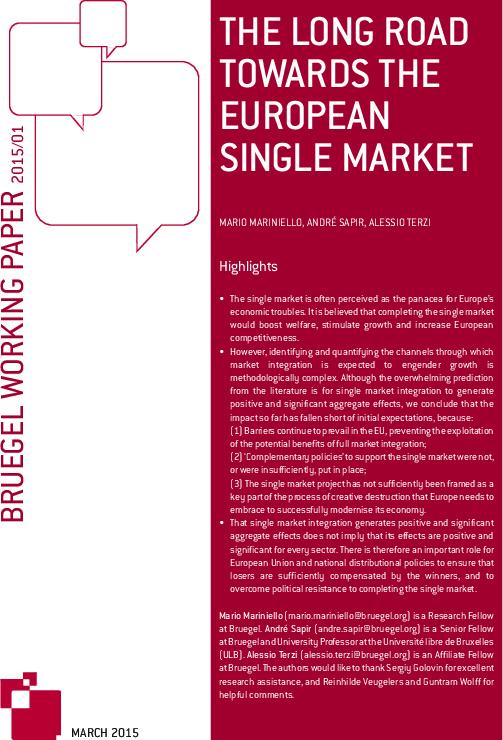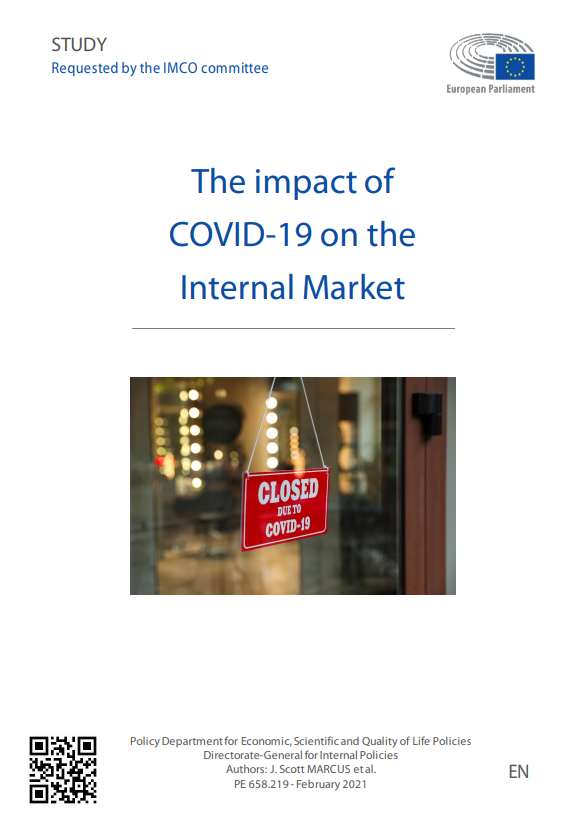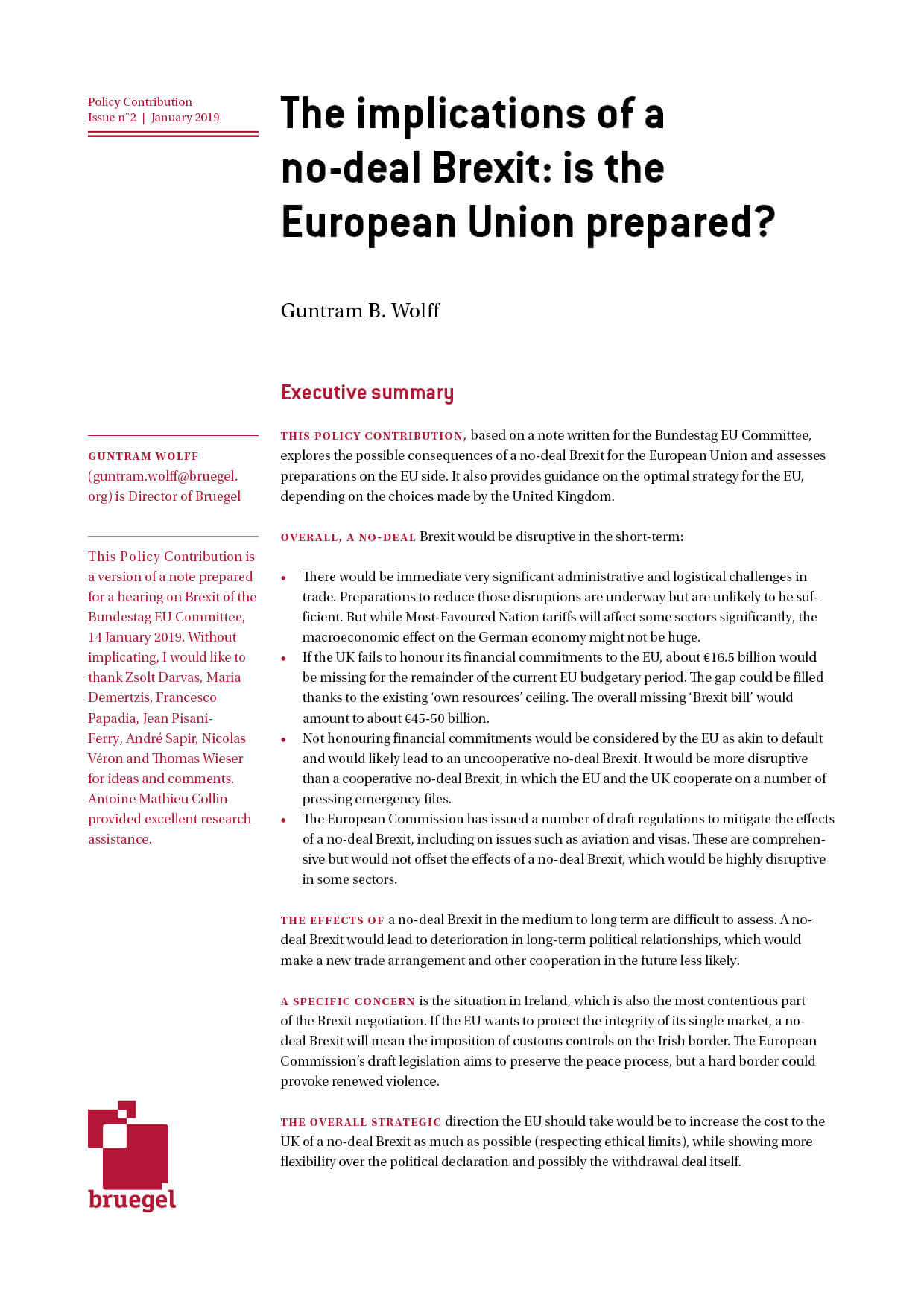Working Paper
The long road towards the European single market
This paper argues that identifying and quantifying the channels through which market integration is expected to engender growth is methodologically complex. The authors conclude that the positive impact of single market integration has fallen short of initial expectations.
- The single market is often perceived as the panacea for Europe’s economic troubles. It is believed that completing the single market would boost welfare, stimulate growth and increase European competitiveness.
- However, identifying and quantifying the channels through which market integration is expected to engender growth is methodologically complex. Although the overwhelming prediction from the literature is for single market integration to generate positive and significant aggregate effects, we conclude that the impact so far has fallen short of initial expectations, because:
(1) Barriers continue to prevail in the EU, preventing the exploitation of the potential benefits of full market integration
(2) ‘Complementary policies’ to support the single market were not, or were insufficiently, put in place
(3) The single market project has not sufficiently been framed as a key part of the process of creative destruction that Europe needs to embrace to successfully modernise its economy. - That single market integration generates positive and significant aggregate effects does not imply that its effects are positive and significant for every sector. There is therefore an important role for European Union and national distributional policies to ensure that losers are sufficiently compensated by the winners, and to overcome political resistance to completing the single market.
















